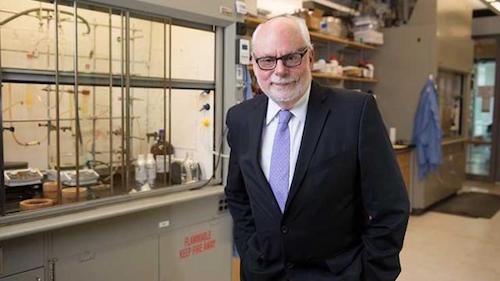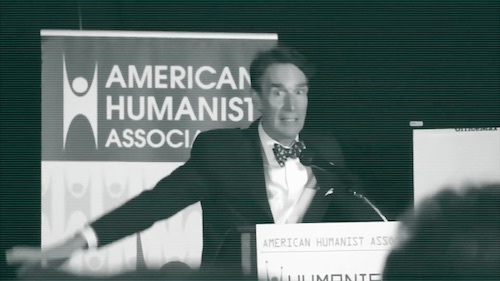Discovery Institute's Blog, page 34
October 6, 2016
MDs Can't Refuse to Kill, Can Refuse to Care

As I have been -- and will be -- warning with intensifying urgency, moves are afoot to destroy medical conscience clauses under which doctors, nurses, and others can refuse to participate in abortions and assisted suicide. This force-MDs-to-kill meme was summarized :
Physicians shouldn't have the legal right to act as conscientious objectors and refuse to provide services like abortion or assisted suicide even when these things conflict with their personal values, so...
Intelligent Design: Nobel Prize for Chemists who Synthesized Molecular Machines

On this year's Nobel Prize winners in chemistry, pioneers in nanotechnology, thoughtful reader Eric beats us to the punch:
You've likely noticed that the chemistry Nobel Prize has been awarded to three chemists for the contributions to the study of molecular machines. They made impressive progress in being able to carefully arrange molecules so as to make machines that work.As I read some of the articles about their work, I notice statements about how it required exceptional insight, great...
A View of the World Fueled by "Nothing Special"

It's helpful to step back periodically, take a sweeping look at your own interests and commitments, and ask what if anything they have in common. Or conversely, look at the ideas and movements you oppose -- since we're defined as much by what we don't like as by what we do -- and consider what they have in common.
Are your commitments schizophrenic, or do they cohere?
Everything we talk and write about here at Evolution News is unified by our common defiance of a persuasive but damaging vie...
October 5, 2016
Evolutionists Could Learn a Thing from Dark Matter Physics

"When you don't know what something is, you have to consider everything," Johns Hopkins physicist Simeon Bird told Nature magazine recently. He was talking about dark matter, the invisible stuff physicists now believe makes up most of the mass of the universe. They haven't been able to detect the mysterious stuff directly, but they're convinced it's out there due to telltale clues in the way, for instance, galaxies behave.
Their challenge now is to figure out what exactly dark matter is. Bi...
Can Pigeons Read?
Much of modern research on animal "language" reminds me of a remark by one of my favorite comedians, Paul Lynde. Readers of a certain age may recall his snarky irreverent humor. He was asked once on a quiz show if it were possible to get a baby monkey to say "momma"? Lynde replied, "Give me a pair of pliers and a lit cigarette, and I'll get him to say anything you want."
Rather than pliers and cigarettes, researchers at Duke University are likely to have employed tasty treats for their resea...
From Doug Axe, Here's Permission to Listen to Your Inner "Common Scientist"
"Common science," akin to common sense, is what protein chemist Douglas Axe calls an activity we've all grown up doing: observing phenomena in the world, analyzing them using models in our mind to see how they work, refining our models as more data comes in, sometimes overturning our understanding of a thing when the data convincingly turns against the way we thought of it.
This requires no training, no PhD. We do it naturally from childhood on.
In his new book, Undeniable: How Biology Conf...
October 4, 2016
Imagine: 60 Million Proteins in One Cell Working Together

Scientific nomenclature follows a quirky path. First we had the gene. Then, scientists thought it would be convenient to lump all genes of an organism into a category called the genome (for gene + soma, L. body from chromosome). When epigenetics entered the discussion, we now had the epigenome, along with derivative terms genomics and epigenomics. Don't forget proteins -- though, they needed a term for the set of all proteins in a cell: the proteome.
The study of that is called proteomics....
October 3, 2016
Discovery Institute's Jonathan Witt Enters the Controversy over Texas Science Standards

As I've noted here before, Texas is in the process of streamlining its science standards, which means that Darwinists are ringing alarm bells and warning of terrible consequences if public schools fail to teach evolutionary theory as sacred, unquestionable doctrine. Jonathan Witt, a Center for Science & Culture Senior Fellow, addresses the issue in a letter to the members of the Texas State Board of Education.
"As a native Texan living in the Dallas-Fort Worth area," writes Dr. Witt, who rep...
Did a Commenter at BioLogos Find a Damning Error in Meyer's Signature in the Cell? Nope.

The BioLogos website's Open Forum includes a thread, "A plethora of thoughts on Intelligent Design," which is aptly titled. It is loooong, highlighted by musings from ID critic and computer science Josh Swamidass of Washington University, last seen attempting to show how cancer disproves intelligent design. BioLogos includes a helpful feature that gives a current approximate reading time to peruse the whole discussion -- 85 minutes. Yikes.
With other business to attend to, we won't claim to...
Did BioLogos Find a Damning Error in Meyer's Signature in the Cell? Nope.

The BioLogos website's Open Forum includes a thread, "A plethora of thoughts on Intelligent Design," which is aptly titled. It is loooong, highlighted by musings from ID critic and computer science Josh Swamidass of Washington University, last seen attempting to show how cancer disproves intelligent design. BioLogos includes a helpful feature that gives a current approximate reading time to peruse the whole discussion -- 85 minutes. Yikes.
With other business to attend to, we won't claim to...
Discovery Institute's Blog
- Discovery Institute's profile
- 15 followers




